Donald Trump: Jobs Will Solve the Problems Black Americans Face
Asked by Washington Post staff whether he saw disparities in the way U.S. law enforcement treats blacks and whites, the Republican presidential candidate avoided answering directly and proposed that inner-city blacks need employment.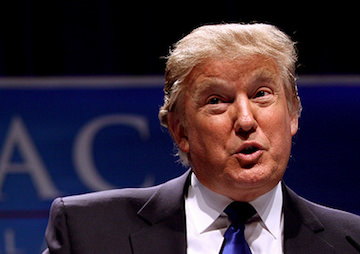
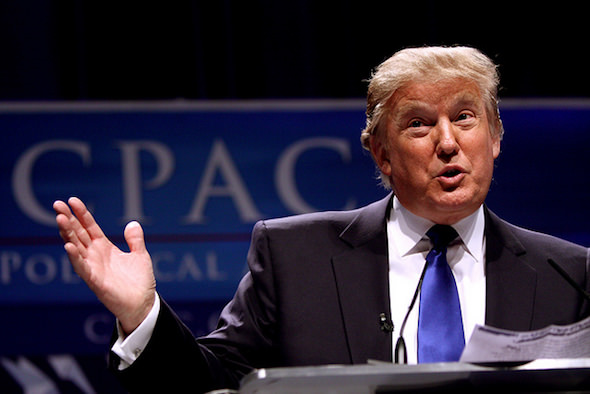
Donald Trump. (Gage Skidmore / CC BY-SA 2.0)
When asked by Washington Post staff whether he saw disparities in the way U.S. law enforcement treats blacks and whites, Republican presidential candidate Donald Trump avoided answering directly and proposed that inner-city blacks need employment.
“What would you do for Baltimore, let’s say,” in the event he was elected president, Post editorial page director Fred Hiatt asked of Trump.
Trump responded: “Well, number one, I’d create economic zones. I’d create incentives for companies to move in. I’d work on spirit because the spirit is so low, it’s incredible, the unemployment, you look at unemployment for black youth in this country, African American youth, is 58-59 percent. It’s unthinkable. Unemployment for African Americans—not youth, but African Americans—is very high. And I would create in the inner cities, which is what I really do best.”
Hiatt pursued the issue by narrowing his question. “The root of many people’s unhappiness in Baltimore was the perception that blacks are treated differently by law enforcement. … do you think it’s a problem that the percentage of blacks in prison is higher than whites, and what do you think is the root of that situation?”
Trump said, “Well I’ve never really see anything that—you know, I feel very strongly about law enforcement. And, you know, if you look at the riot that took place over the summer, if that were stopped—it all, it mostly took place on the first evening, and if that were stopped on the first evening, you know, you’d have a much nicer city right now, because much of that damage and much of the destruction was done on Evening One. So I feel that law enforcement, it’s got to play a big role. It’s got to play a big role. But that’s a pretty good example, because tremendous amounts of damage was done that first evening—first two evenings, but the first evening in particular. And so I’m a very strong believer in law enforcement, but I’m also a very strong believer that the inner cities can come back.”
Touching on the killing of Freddie Gray, Hiatt pressed: “… in general, do you believe there are disparities in law enforcement?”
Trump replied: “I’ve read where there are and I’ve read where there aren’t. I mean, I’ve read both. And, you know, I have no opinion on that. Because frankly, what I’m saying is you know we have to create incentives for people to go back and to reinvigorate the areas and to put people to work.”
Then Post columnist Ruth Marcus attempted the question. “I think that what he was trying to get at was the anger in the African-American community that held some of the riots and disturbances this summer about disparate treatment and about … clearly you say you’ve read where there is disparate treatment. But it is pretty undeniable that there is disproportionate incarceration of African-Americans vs. whites. What would you—is that something that concerns you?”
Trump conceded that “It would concern me … But at the same time it can be solved to a large extent with jobs.”
Post editorial writer and columnist Charles Lane tried to get to the point and asked what makes Trump’s proposal different from the policies officials have been pursuing: “I guess the question, then, is what’s different specifically about your approach to these issues from what’s been tried in the past, because a lot of effort has been put in just the direction you just described.”
Trump then looked out across the national landscape and pronounced the nation afflicted by a “lack of spirit”:
I think what’s different is we have a very divided country. And whether we like it or not, it’s divided as bad as I’ve ever seen it. I‘ve been, you know, I’ve been doing things for a long time. I see it all the time. I mean I see it so often. I see it when we go out and we have 21,000 people in Phoenix, Arizona, the other day, the division—not so much Phoenix, because that was actually very smooth, there wasn’t even a minor, they did block a road, but after that, that was Sheriff Joe Arpaio, when the road was unblocked everyone left and it was fine. But in Tucson, you can see the division. You can see the division. There’s a racial division that’s incredible, actually, in the country. I think it’s as bad, I mean you have to say it’s as bad or almost as bad as it’s ever been. And there’s a lack of spirit. And one thing I thought that would happen, and it hasn’t happened, unfortunately, I thought that President Obama would be a great cheerleader for the country. And it just hasn’t happened. I mean we can say it has. But it hasn’t happened. When you look at the Ferguson problems and the Baltimore problems and the Detroit problems. And you know there’s a lack of spirit. I actually think I’d be a great cheerleader—beyond other things, the other things that I’d do—I actually think I’d be a great cheerleader for the country. Because a lot of people feel it’s a hopeless situation. A lot of people in the inner cities, they feel that way. And you have to start by giving them hope and giving them spirit and that has not taken place. Just has not taken place.
Medium contributor Mike Green saw problems in the way Hiatt and company handled the interview.
Trump was doing his usual scatter-brained, mantra-muttering, shallow personality routine when, in one momentary exchange of unusual clarity, he schooled the WaPo board on the condition of many black residents in Baltimore and other inner city communities. And if the WaPo folks had actually listened, rather than waiting with baited breath to ask the next question, they might have discovered a credible path of discourse with Trump on the issue of economic inclusion and competitiveness of underrepresented populations in America.
Sadly, though, it appears that even the idea of economic inclusion and competitiveness of nonwhite populations seems a remote concept when white media influencers and power brokers address the plight of black people in America. In this telling exchange between the WaPo editorial leadership and Trump, black residents of Baltimore were reduced to a stereotypical level of shared understanding between the predominantly white editorial board and the white candidate whose strongest appeal is among the whitest Americans.
Green wrote that he “found this exchange both insightful and troubling”:
Fred Hiatt, the Washington Post Editorial Page Editor, got the train chugging off in the wrong direction with his elementary framing of a huge and historic issue of black community conflict with systemic institutional bias and deep-rooted historic economic neglect, which Trump was tracking before Hiatt redirected the course. …
It is evident that Trump has some recognition of the value of educational infrastructure. And he appears to allude to that point. Unfortunately, WaPo leaders had already determined the course of the conversation and completely missed a golden opportunity to delve deeper into the core construct of systemic institutional bias that has left black populations “living on a lonely island of poverty surrounded by an ocean of material prosperity,” as Dr. Martin Luther King so eloquently stated in his famous speech, August 1963 during the March on Washington. Instead, the WaPo leaped off the tracks and dove headlong into an unfortunate framing of the issue.
Continue reading Green’s remarks here.
—Posted by Alexander Reed Kelly.
Independent journalism is under threat and overshadowed by heavily funded mainstream media.
You can help level the playing field. Become a member.
Your tax-deductible contribution keeps us digging beneath the headlines to give you thought-provoking, investigative reporting and analysis that unearths what's really happening- without compromise.
Give today to support our courageous, independent journalists.

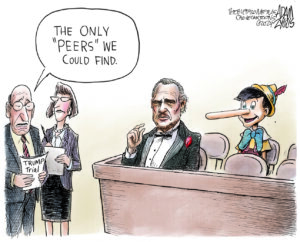

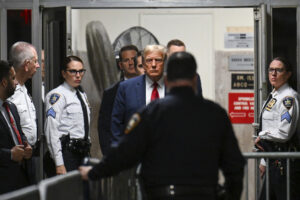
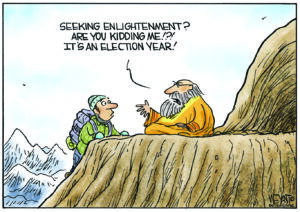
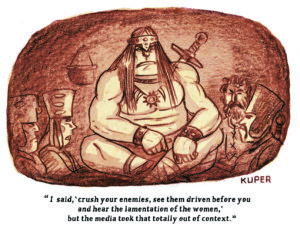
You need to be a supporter to comment.
There are currently no responses to this article.
Be the first to respond.